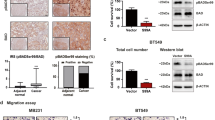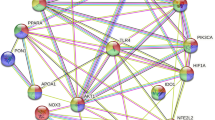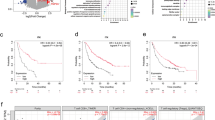Abstract
The serine protease inhibitor N-α-tosyl-L-phenylalanine chloromethyl ketone (TPCK) can interfere with cell-cycle progression and has also been shown either to protect cells from apoptosis or to induce apoptosis. We tested the effect of TPCK on two transformed T-cell lines. Both Jurkat T-cells and Theileria parva-transformed T-cells were shown to be highly sensitive to TPCK-induced growth arrest and apoptosis. Surprisingly, we found that the thiol antioxidant, N-acetylcysteine (NAC), as well as L- or D-cysteine blocked TPCK-induced growth arrest and apoptosis. TPCK inhibited constitutive NF-κB activation in T. parva-transformed T-cells, with phosphorylation of IκBα and IκBβ being inhibited with different kinetics. TPCK-mediated inhibition of IκB phosphorylation, NF-κB DNA binding and transcriptional activity were also prevented by NAC or cysteine. Our observations indicate that apoptosis and NF-κB inhibition induced by TPCK result from modifications of sulphydryl groups on proteins involved in regulating cell survival and the NF-κB activation pathway(s).
Similar content being viewed by others
Log in or create a free account to read this content
Gain free access to this article, as well as selected content from this journal and more on nature.com
or
Author information
Authors and Affiliations
Corresponding author
Additional information
Edited by A. Finazzi-Agró
Rights and permissions
About this article
Cite this article
Heussler, V., Fernandez, P., Machado, J. et al. N-acetylcysteine blocks apoptosis induced by N-α-tosyl-L-phenylalanine chloromethyl ketone in transformed T-cells. Cell Death Differ 6, 342–350 (1999). https://doi.org/10.1038/sj.cdd.4400501
Received:
Revised:
Accepted:
Published:
Issue date:
DOI: https://doi.org/10.1038/sj.cdd.4400501
Keywords
This article is cited by
-
The cathepsin B inhibitor z-FA-CMK induces cell death in leukemic T cells via oxidative stress
Naunyn-Schmiedeberg's Archives of Pharmacology (2018)



